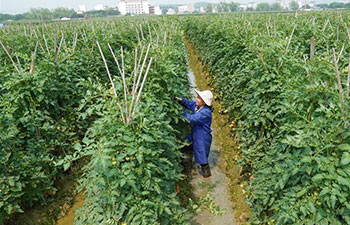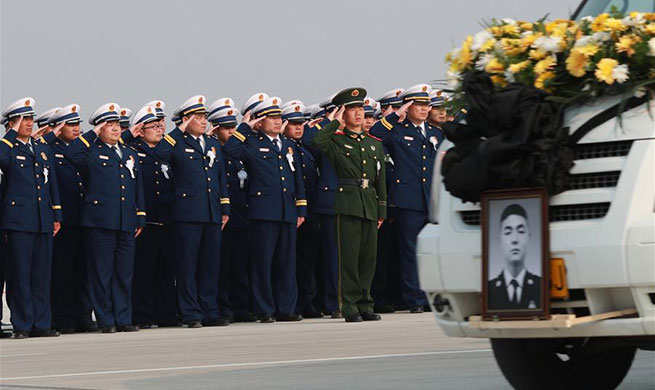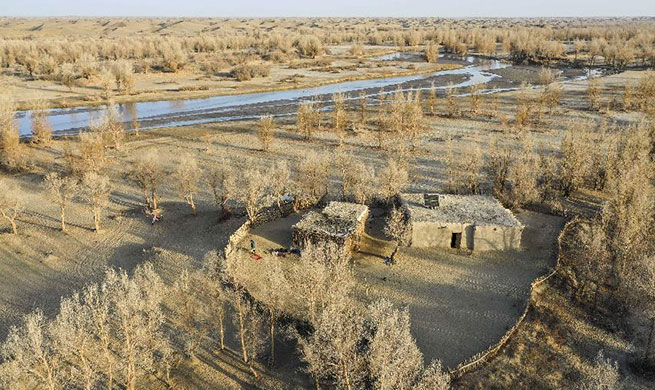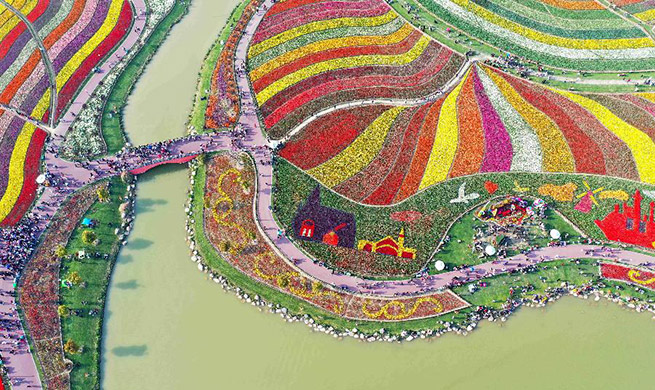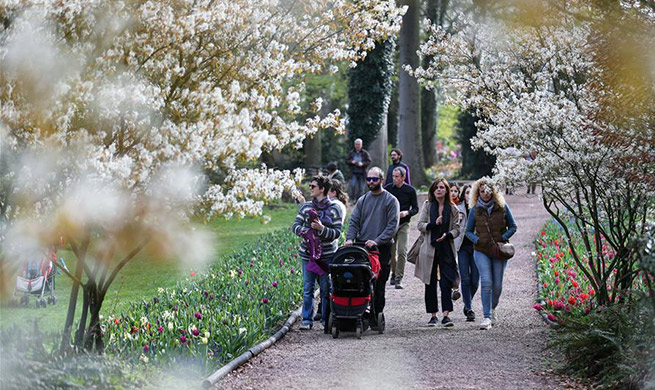BEIJING, April 7 (Xinhua) -- Female civil servant Ma Xinjuan died, at the age of 39, only a few months before Shangyan Village was lifted out of poverty in 2018.
"She was like the peach blossoms," said Ma Caiqin, a villager of Shangyan. Peach blossoms are common during spring scenery at this once impoverished village in northwest China's Ningxia Hui Autonomous Region.
But when Ma Xinjuan, former Party secretary of Huanghua Township, first came to the village, she received antipathy from some villagers.
Some 50 poor households of Shangyan Village used to live on an inhospitable strech of benchland, which was a major cause of the poverty.
Local officials had attempted to help them get rid of poverty through relocation, one of China's poverty-relief strategies to encourage people striken by harsh natural conditions to move to livable places, offering them government subsidies.
But many villagers stubbornly refused to move, due to doubts and a lack of knowledge about related policies.
Soon after she assumed office, Ma set up a tent at the entrance of Shangyan Village to live temporarily there.
She knocked the doors of those reluctant to move, sat in their yards, and patiently answered their questions, including whether they would gain sufficient subsidies or get used to the new houses. After two weeks, 51 households signed the relocation agreement.
Ma has also led villagers to take tailored measures to increase their incomes based on each village's conditions.
In Yangcao Village, Ma pushed for the establishment of a poverty-reduction workshop, where over 40 women from poor families found jobs. They draw on their fine craftsmanship and handmade items such as wallets, insoles and pillowcases, which sell at places as far away as Beijing and Shanghai.
In December 2018, Shangyan and Yangcao were removed from the list of poverty-striken villages with eight other villages of Huanghua Township, which means poverty had dropped to 3 percent and below, with all impoverished population included in the national basic medical insurance scheme.
Ma died about a year after she was diagnosed with lymph cancer by a Beijing-based hospital in May 2017.
Even during chemotherapy, she often thought about poverty relief work, and after five months treatment, she returned to her office.
The mountainous Guyuan City, where Huanghua Township is located, is one of the sites where the Workers' and Peasants' Red Army of the Communist Party of China arrived during the epic Long March from 1934 to 1936, which had seen a large number of officers and soldiers killed or injured.
Over 80 years on, Ma Xinjuan and her fellows have carried out another long march, with sacrifices, but bound for a brighter future.







